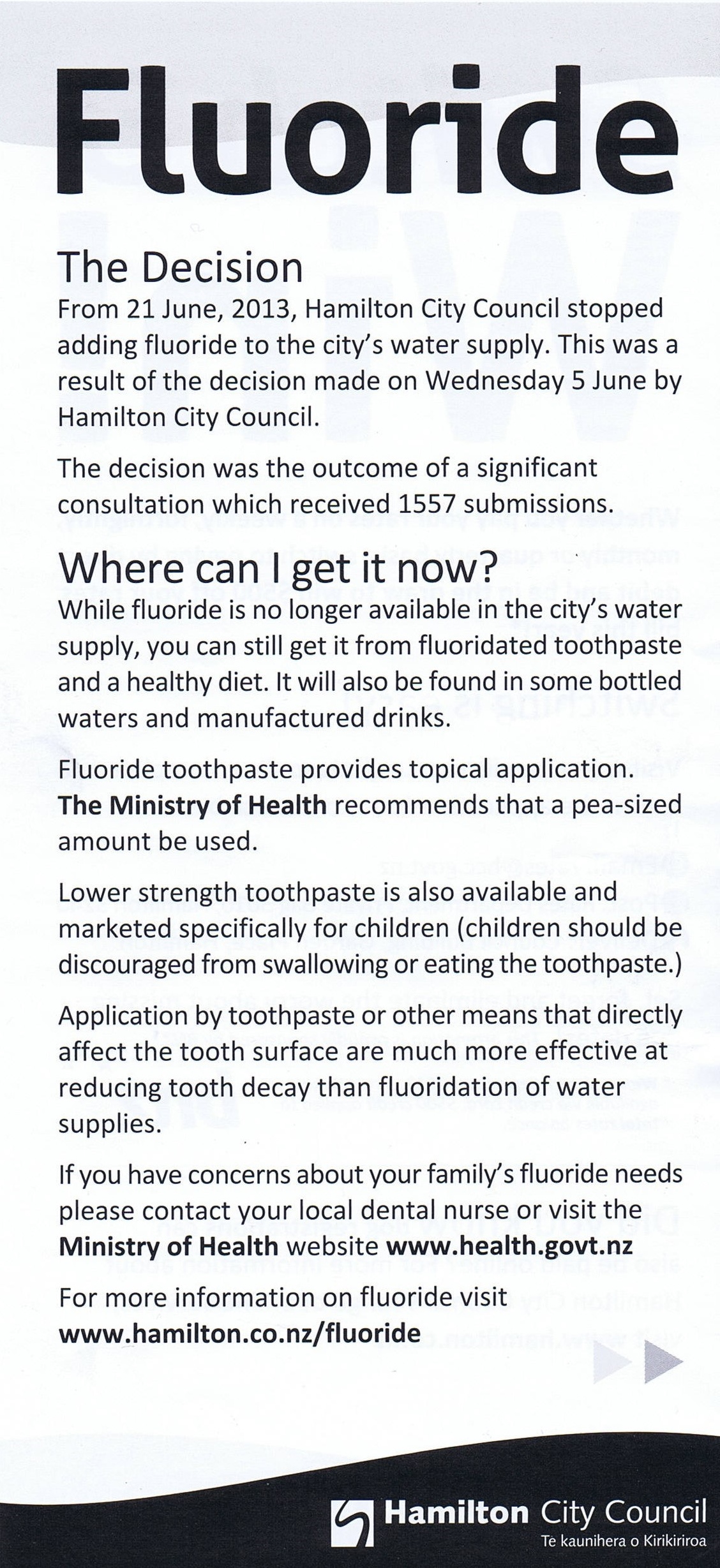Medical experts who were ignored over the fluoride decision are frustrated that misleading information was released by Hamilton City Council.
The warning came after a council flier [see below] was circulated throughout the city with information the Waikato DHB and Ministry of Health officials said was misleading.
DHB medical officer of Health Dr Anita Bell and Ministry of Health chief dental officer Robyn Haisman-Welsh wrote to council chief executive Barry Harris to express their concerns over the fliers.
An angry Waikato DHB chief executive Craig Climo said the information was potentially harmful and the health sector had been pushed to the sidelines.
“We seem to have been marginalised. From my point of view, I feel as if the district health board has been treated as a spectator in all of this and I don’t think that’s appropriate,” he said.
“My concern is they’ve sent these leaflets out to all of Hamilton, didn’t seek to check the accuracy of that information, and certainly we the DHB don’t like Hamilton City Council purporting to represent us or what we’ve said.”
With mounting pressure from the community and a referendum in sight, Mr Climo was concerned that the fluoride issue, which should remain a health issue, had been hijacked for political gain.
“It has become somewhat political for the council.
“That’s because they are wanting to justify their decision, conscious of the widespread and high-level criticism that their decision received, conscious there is an election and concurrent that electors will be asked to vote on the subject of fluoridation.”
The council’s flier said the application of fluoride by toothpaste was “more effective at reducing tooth decay than fluoridation of water supplies” but the experts said toothpaste was of “additional benefit above that of fluoridated water”.
The flier also promoted a pea-sized amount of toothpaste be used and encouraged lower-strength toothpaste for children.
Dr Bell said that care needed to be taken with advice about use of fluoride toothpaste in children and the “pea-sized” amount related only to children older than 6, with younger children using a smear of paste.
She recommended that children use regular-strength fluoride toothpaste.
Waikato DHB medical officers had worked to ensure the public received accurate information about water fluoridation ahead of the council referendum.
A four-day tribunal in June led to the decision to remove fluoride from the Hamilton water supply after 66 years and was a “perfect example of science losing out to bias” and Mr Climo said the advice from DHB was clearly rejected.
City council chief executive Barry Harris said information in the flier came primarily from Ministry of Health guidelines which were “summarised and simplified”.
“The council would like to remind the people of Hamilton that there are two sides to this debate and the final decision is in the hands of people of Hamilton in the upcoming referendum,” Mr Harris said.
– END –

